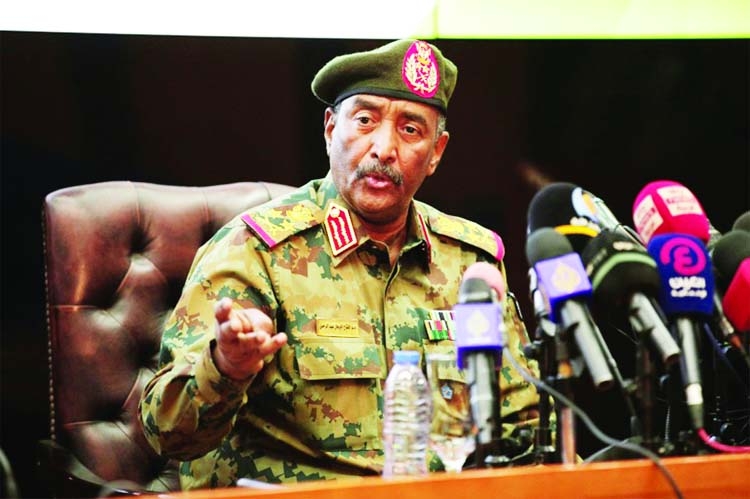
Al Jazeera :
Sudan’s ruling military has sacked six ambassadors and security forces have tightened their crackdown on pro-democracy protesters, even as international pressure against this week’s coup grows.
The decision, announced late on Wednesday on state media, included Sudan’s ambassadors to the United States, the European Union, China, Qatar, France and the head of the country’s mission to the Swiss city of Geneva, apparently over their rejection of the military takeover.
It came as demands are mounting for the army to walk back Monday’s coup that derailed Sudan’s fragile transition towards democracy following the removal of longtime ruler Omar al-Bashir in April 2019 in a popular uprising.
On Wednesday, the African Union announced its decision to suspend Sudan from the bloc’s activities until the restoration of the country’s civilian-led transitional government, while the Word Bank froze aid and the United States paused $700m in emergency assistance. Several Western embassies in Khartoum also said they will keep recognising deposed Prime Minister Abdalla Hamdok and his cabinet as “the constitutional leaders of the transitional government” of Sudan.
Meanwhile, protests denouncing the army’s power grab continued in the capital, Khartoum, and elsewhere, with many businesses shut in response to calls for strikes as part of a civil disobedience campaign that has also seen demonstrators blocking roads.
Reports said hundreds of protesters threw rocks at security forces dismantling street barricades in Khartoum’s eastern district of Burri, while in the capital’s north, security personnel fired tear gas and rubber bullets at dozens of demonstrators.
“Neighbourhoods and streets have been blockaded by armoured vehicles and men carrying rifles,” the information ministry, still loyal to Hamdok, said in a statement, also alleging that “women were dragged” to the ground.
“All security on the streets now look like the Bashir-era forces,” one protester lamented to the AFP news agency.Neighbourhood committees have announced plans for further protests, leading to what they said would be a “march of millions” on Saturday.
General Abdel Fattah al-Burhan on Monday dissolved the transitional government and the Sovereign Council, the country’s top ruling body, as soldiers arrested several senior officials, including Prime Minister Abdalla Hamdok.
Despite the declaration of a state of emergency, tens of thousands of pro-democracy protesters poured into the streets of Khartoum and its twin city Omdurman. The demonstrations were met with gunfire by the security forces, with at least seven people killed and dozens more wounded, according to health sources.
Speaking at his first news conference since announcing the takeover, al-Burhan said on Tuesday the army had no choice but to sideline politicians who were inciting people against the armed forces.
“The dangers we witnessed last week could have led the country into civil war,” said al-Burhan, who also pledged to hold elections in July 2023 and to appoint a technocratic government in the meantime.
Critics, however, doubt the military intent on eventually ceding control, noting that the coup came just weeks before al-Burhan was supposed to hand over the leadership of the Sovereign Council to a civilian.
Volker Perthes, the United Nations special envoy for Sudan, met al-Burhan on Wednesday and reiterated the UN’s call for a return to the transition process under the constitutional document and the immediate release of all those arbitrarily detained.
Perthes also met Hamdok in his residence “where he remains under guard”, spokesman Stephane Dujarric said. Envoys from France, Germany, Norway, the United Kingdom, the US and the EU also visited Hamdok, who was reported as being in good health.

